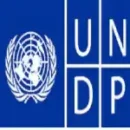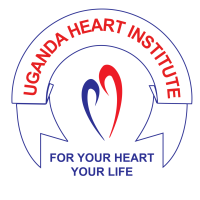- Humanitarian situation analysis.
- Organization and facilitation of coordination meetings
- Information collection/sharing in support of informed response.
- Reporting and monitoring of the humanitarian response
Duties and Responsibilities
Provide timely and effective humanitarian analysis, focusing on the achievement of the following results:
- Support monitoring of the humanitarian situation
- Review and analyze incoming field reports, prepare summaries of field activities
- Actively contribute to the preparation of the Humanitarian Response Plan (HRP), Humanitarian Needs Overview (HNO) and HRP Mid-Year Review and End-year Review processes, and any other strategic planning and field analysis initiatives that involve field input and analysis.
- Gather and analyze information on issues affecting the humanitarian situation and response, emphasizing opportunities for response.
- Support the update of OCHA information management tools.
Support and advise on coordination and cooperation mechanisms among stakeholders focusing on the achievement of the following results:
- Support coordination mechanisms and forums.
- Support the collection of field information to support and improve humanitarian response, coordination activities and information products.
- Pro-actively share information relevant stakeholders on relevant humanitarian-related issues.
- Identify and analyze information that will assist with coordination and organizational decision-making with a particular focus on improving humanitarian response.
- Prepare reports on the key humanitarian issues in the regions and engage with partners to provide analysis and messages on response gaps.
- Establish and maintain constructive relationships with key and relevant stakeholders, in areas of operation to ensure humanitarian information flow and support humanitarian access and response
Ensure facilitation of knowledge building and knowledge sharing focusing on achievement of the following results:
- Identification and synthesis of best practices and lessons learnt
- Sound contributions to knowledge networks and communities of practice
-
Required Skills and ExperienceEducation:
- Advanced university degree (master’s degree or equivalent) in social sciences, international relations, humanitarian action, development, natural disaster management, human sciences, public administration, or another relevant/related field. OR
- A first-level university degree (bachelor’s degree) in combination with an additional two years of qualifying experience will be given due consideration in lieu of the advanced university degree.
Experience:- Minimum of 2 years (with master’s degree) or 4 years (with bachelor’s degree) of relevant experience at the national or international level in humanitarian and inter-agency contexts, dealing with humanitarian/relief issues is required.
- Experience working in South-West and North-West regions with familiarity of humanitarian context and humanitarian operations in the region is required
- Computer skills and command of office tools (in (MS Word, Excel, Outlook, etc.) is required
- Strong communication and networking skills/experience are asset
- Strong organizational and planning skills/experience are asset
- Relevant experience in collecting, analyzing, evaluating, and synthesizing information is asset.
- Strong report writing skills and experience is an asset
- In-depth proven knowledge of humanitarian mandates, principles and awareness of protection mainstreaming is asset.
Languages:
- Full professional knowledge of written and spoken English and French is required
- Knowledge of local languages of the North-West region is an asset: Bakweri; Pidjin; Bakossi; Balondo; Bafo; Oroko, Bayangui.etc











